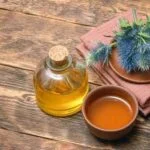Aromatherapy has been gaining popularity in recent years as a natural way to enhance wellness and support mental and emotional well-being. At the heart of this practice are essential oils, which are derived from plants and have been used for centuries for their therapeutic properties. However, a growing trend in the use of fragrance oils has sparked a debate on whether they can provide similar aromatherapy benefits. So, can you get aromatherapy effect from fragrance oils?
Aromatherapy is a holistic healing treatment that uses natural plant extracts to promote health and well-being. These plant extracts, or essential oils, are highly concentrated and can be used in various ways, such as inhalation, topical application, or even through massage. The use of aromatherapy has gained momentum as people seek alternative methods for relaxation and promoting a sense of calm in their daily lives.
On the other hand, fragrance oils are synthetic or artificially created scents that mimic the aroma of natural essential oils. They are commonly used in candles, soaps, lotions, and other beauty products for their pleasant scent. However, the question remains whether fragrance oils can actually provide the same therapeutic effects as essential oils in aromatherapy practices. This growing interest in the potential benefits of fragrance oils has sparked continuous debate within the aromatherapy community.
Understanding Aromatherapy
Aromatherapy has been around for centuries and is the practice of using natural plant extracts, such as essential oils, to promote physical and psychological well-being. The use of aromatic plant extracts for their medicinal and therapeutic benefits can be traced back to ancient civilizations in China, India, Egypt, and Greece. Today, aromatherapy has become increasingly popular as people seek alternative and holistic approaches to wellness.
Aromatherapy works by stimulating the smell receptors in the nose, which then send messages through the nervous system to the limbic system – the part of the brain that controls emotions and memories. This process can trigger various physiological responses in the body, including relaxation, stress relief, improved sleep, and even pain relief. Different essential oils have different properties and effects on the body and mind, so their use can be tailored to specific needs.
The Potential Benefits of Aromatherapy
These Are
typically associated with these results.
The Difference Between Essential Oils and Fragrance Oils
Explaining the Difference
Essential oils and fragrance oils are often used interchangeably, but they are two distinct products with different compositions and uses. Essential oils are derived from plants through a process of distillation or cold-pressing, capturing the natural aroma and therapeutic properties of the plant.
On the other hand, fragrance oils are synthetic or artificially created scents that mimic the aroma of natural substances. While essential oils are commonly used for aromatherapy and holistic wellness, fragrance oils are primarily used in perfumery, cosmetics, and home scenting products.
How They Are Made
Essential oils are extracted from various plant parts such as flowers, leaves, bark, roots, and fruits using methods like steam distillation or solvent extraction. This results in highly concentrated oils that retain the natural chemical compounds found in the plants. In contrast, fragrance oils are created in a laboratory by combining synthetic chemicals to replicate specific scents. These synthetic compounds can also include natural ingredients but may undergo processes that alter their natural state.
Their Individual Uses and Benefits
Essential oils have been valued for their therapeutic properties for centuries and are commonly used in aromatherapy to promote physical, emotional, and mental well-being. Each essential oil has its own unique set of benefits and uses – lavender for relaxation, peppermint for energy, eucalyptus for respiratory support, etc.
Fragrance oils
Aromatherapy Effectiveness of Essential Oils
When it comes to aromatherapy, essential oils are often the first choice for many individuals seeking natural remedies for various ailments and wellness goals. Essential oils are highly concentrated plant extracts that are known for their aromatic and therapeutic properties. They have been used for centuries in traditional medicine practices and continue to be a popular choice in modern aromatherapy treatments. Here is an exploration of the effectiveness of essential oils in aromatherapy.
Research and studies have provided evidence supporting the effectiveness of essential oils in promoting relaxation, reducing stress, improving sleep quality, and easing symptoms of certain conditions such as headaches and migraines. It is believed that when inhaled or applied topically, the aromatic compounds of essential oils can interact with the body’s limbic system, which is responsible for emotions, memories, and arousal. This interaction can lead to various physiological responses that contribute to the potential benefits of aromatherapy.
Some popular essential oils commonly used in aromatherapy include lavender, peppermint, eucalyptus, tea tree, and lemon. Each essential oil has its own unique set of therapeutic properties that can be utilized for different purposes. For example, lavender oil is well-known for its calming effects and is often used to promote relaxation and alleviate anxiety and stress. Peppermint oil is frequently used for its energizing and refreshing scent, while also being helpful in relieving headaches and muscle pain.
Incorporating essential oils into your daily routine for aromatherapy can be done through various methods such as diffusing them in a room using a diffuser, adding a few drops to a warm bath, blending them with carrier oils for massage, or inhaling them directly from the bottle or through a handkerchief. However, it is important to use essential oils safely by diluting them appropriately and understanding any contraindications or potential adverse reactions associated with each oil.
Can You Get Aromatherapy Effect From Fragrance Oils?
Many people have turned to aromatherapy as a natural and holistic approach to improving their overall well-being. But with the growing popularity of aromatherapy, there is a common question that arises: Can you get aromatherapy effect from fragrance oils? In order to answer this question, it is important to understand what aromatherapy is and how fragrance oils play a role in this practice.
Aromatherapy involves using natural plant extracts, such as essential oils, to promote physical and psychological well-being. These essential oils are typically extracted through methods like distillation or cold pressing from various parts of plants including flowers, leaves, and bark. The use of these aromatic compounds is believed to have therapeutic effects on the body and mind.
On the other hand, fragrance oils are synthetic oils that are created in laboratories to mimic specific scents found in nature. While they may smell similar to essential oils, they do not contain the same natural properties.
When it comes to assessing whether one can experience the benefits of aromatherapy from fragrance oils, it is important to consider the composition and uses of fragrance oils in comparison to essential oils. Here are some key points to consider:
- Fragrance oils are primarily used for their pleasant scent in products such as candles, perfumes, and soaps.
- They are not derived from natural sources and do not possess the same therapeutic properties as essential oils.
- While they may create a pleasing ambiance, their effectiveness in providing true aromatherapy benefits may be limited compared to essential oils.
The Benefits of Using Fragrance Oils for Aromatherapy
Fragrance oils have been used for centuries to enhance the physical, emotional, and mental well-being of individuals. While some may argue that essential oils are the only effective option for aromatherapy, fragrance oils also offer a range of benefits that should not be overlooked. Many people turn to fragrance oils for their affordability, accessibility, and diverse range of scents. These oils can be used in a variety of ways to promote relaxation, reduce stress, and even improve sleep quality.
One of the key benefits of using fragrance oils for aromatherapy is the wide assortment of scents available. From calming lavender to invigorating citrus blends, fragrance oils provide an extensive selection to cater to individual preferences and needs. This variety allows individuals to customize their aromatherapy experience based on their mood or specific desired results. Additionally, the affordability of fragrance oils makes them an attractive option for those who want to enjoy the benefits of aromatherapy without breaking the bank.
Furthermore, when properly diluted and used safely, fragrance oils can effectively create a pleasant and soothing atmosphere similar to essential oils in aromatherapy. They have been found to promote relaxation, uplift mood, and create an inviting environment. It’s important to note that while some people prefer using essential oils for therapeutic purposes due to their natural origins, fragrance oils are still widely used by individuals who seek enjoyable scents and potential aromatic benefits without solely focusing on therapeutic effects.
| Benefits | Description |
|---|---|
| Wide Range of Scents | Fragrance oils offer a diverse selection of scents catering to individual preferences. |
| Affordability | These oils are an affordable option for those seeking aromatherapy benefits without high costs. |
| Mental & Emotional Well-being | When safely used, fragrance oils can create a pleasant atmosphere promoting relaxation and improved mood. |
Comparing Essential Oils and Fragrance Oils in Aromatherapy
When it comes to aromatherapy, the use of essential oils is often the go-to choice for many individuals seeking natural remedies and therapeutic benefits. However, fragrance oils are also widely used in the practice of aromatherapy, prompting the question: Can you get aromatherapy effect from fragrance oils?
Fragrance oils are synthetic or artificially created oils that are specifically designed to emit a particular scent. While they may not offer the same holistic or medicinal properties as essential oils, fragrance oils can still contribute to creating a calming and enjoyable atmosphere through their pleasant aromas. These scents can positively impact mood, reduce stress levels, and even improve overall emotional well-being. Additionally, some fragrance oils may be formulated with specific intentions such as relaxation, focus, or rejuvenation.
It is important to note that while fragrance oils do provide aromatic effects, they lack the therapeutic benefits that essential oils offer. Essential oils are extracted directly from plants and contain natural compounds that have been studied for their potential health benefits.
They can be used for a wide range of purposes including stress relief, pain management, improved sleep quality, and more. In contrast, fragrance oils primarily serve to impart a desired scent without carrying the same medicinal properties found in essential oils.
Given this distinction between essential and fragrance oils in aromatherapy, it is ultimately up to individual preference and intention when selecting which type of oil to use. Those seeking purely aromatic effects may find fragrance oils suitable for their needs, while individuals desiring both scent and therapeutic benefits may opt for essential oils.
| Comparison | Essential Oils | Fragrance Oils |
|---|---|---|
| Source | Natural plant extracts | Synthetic or artificially-created aromas |
| Aromatic Effects | Therapeutic properties; Mood enhancement; Stress reduction | Pleasant scents; Mood enhancement; Emotional well-being improvement |
Conclusion
In conclusion, the use of fragrance oils in aromatherapy has been a topic of debate and controversy. While essential oils have been traditionally used for their therapeutic benefits, fragrance oils have also begun to make their mark in the realm of aromatherapy. The question “Can you get aromatherapy effect from fragrance oils?” is a valid one, as it ultimately comes down to individual preferences and experiences.
While essential oils are derived from natural plant sources and are believed to offer various health benefits, fragrance oils are synthetic and do not possess the same therapeutic qualities. However, many individuals still find that certain fragrance oils can provide a sense of relaxation, upliftment, and stress relief when used in aromatherapy practices.
Ultimately, the decision to use essential oils or fragrance oils for aromatherapy is a personal one. For those seeking purely therapeutic benefits, essential oils remain the preferred choice.
However, for those who enjoy the variety of scents offered by fragrance oils and find them beneficial in their own way, incorporating them into their aromatherapy routine can still be valuable. As with any practice or product, it’s important to do thorough research and consult with a healthcare professional if necessary before incorporating any new elements into your wellness routine.
Frequently Asked Questions
Can Fragrance Oils Be Used for Aromatherapy?
Fragrance oils are not the same as essential oils, which are commonly used in aromatherapy. While fragrance oils may smell nice, they do not offer the therapeutic benefits of essential oils and may even contain synthetic chemicals that can be harmful when inhaled.
What Are the Side Effects of Fragrance Oils?
Some potential side effects of fragrance oils include allergic reactions, skin irritation, and headaches. This is because many fragrance oils contain artificial or chemical ingredients that can be irritating to some individuals, especially those with sensitivities or allergies.
Are Fragrance Oils Safe to Inhale?
Inhaling fragrance oils may not be entirely safe, especially for individuals with respiratory issues or sensitivities. Some fragrance oils contain synthetic chemicals that can be harmful when inhaled, leading to respiratory irritation or exacerbating existing conditions like asthma. It’s important to use caution and opt for natural essential oils instead for inhalation or aromatherapy purposes.

Are you looking for a natural way to improve your health and wellbeing?
If so, aromatherapy may be the answer for you.





